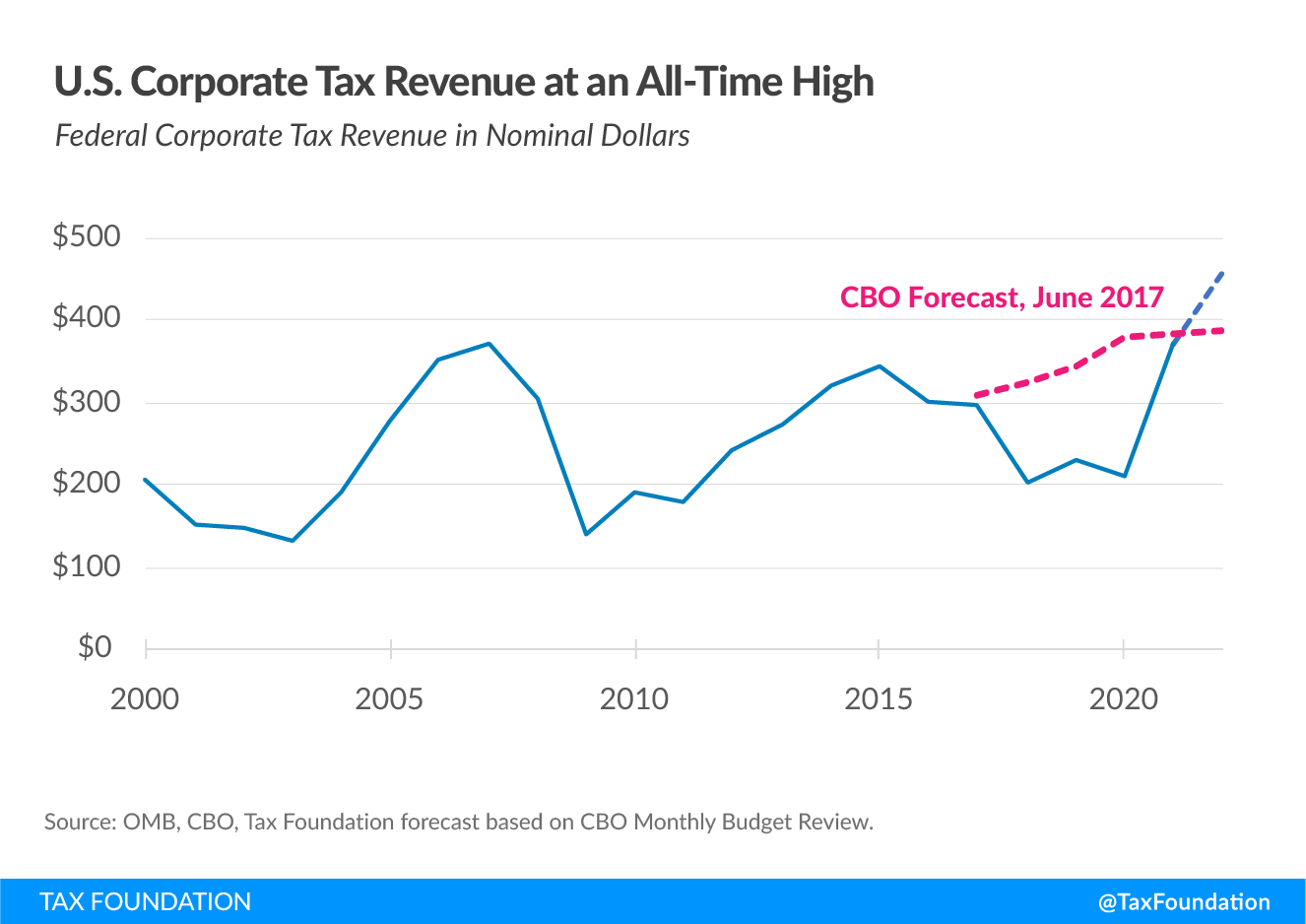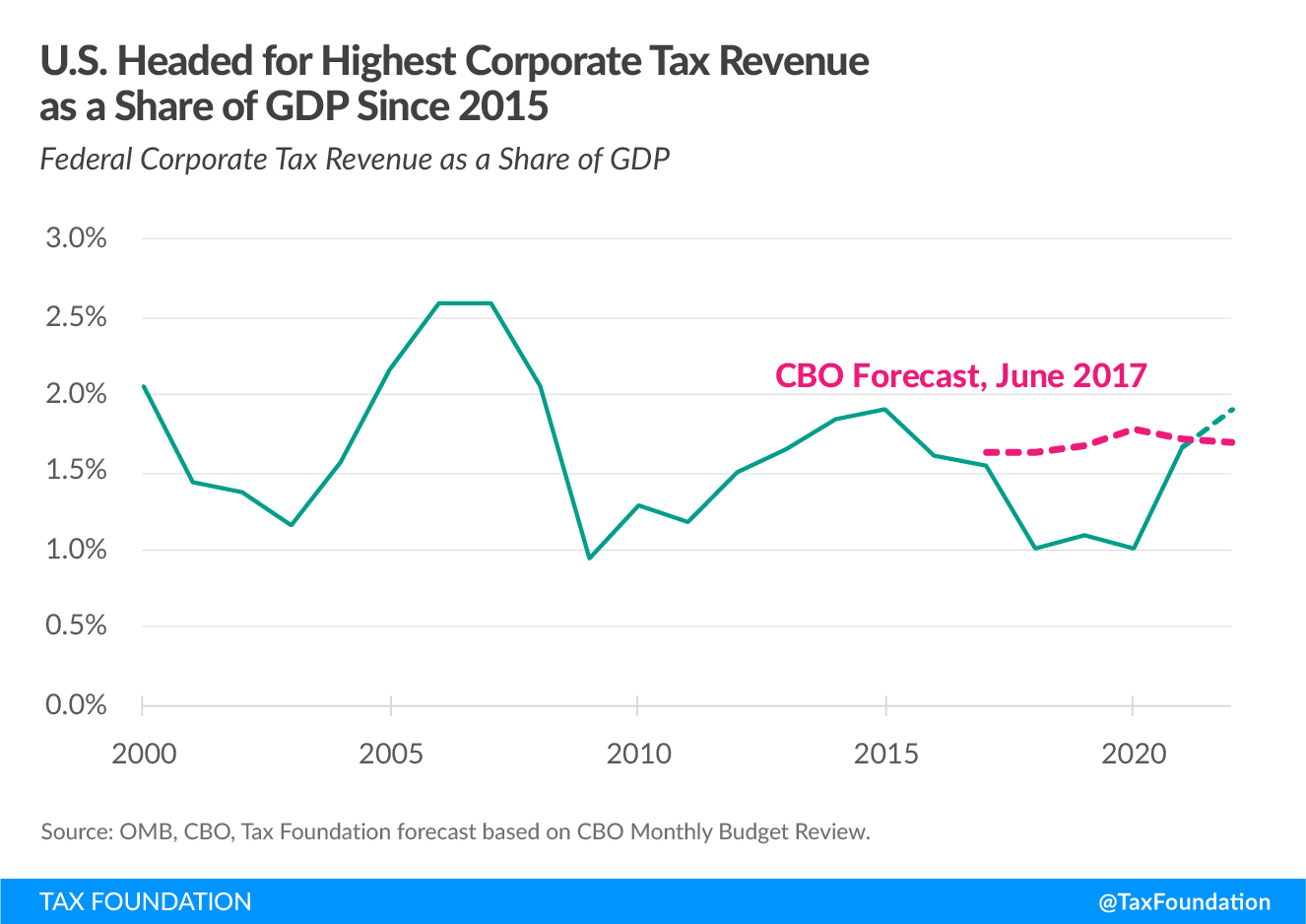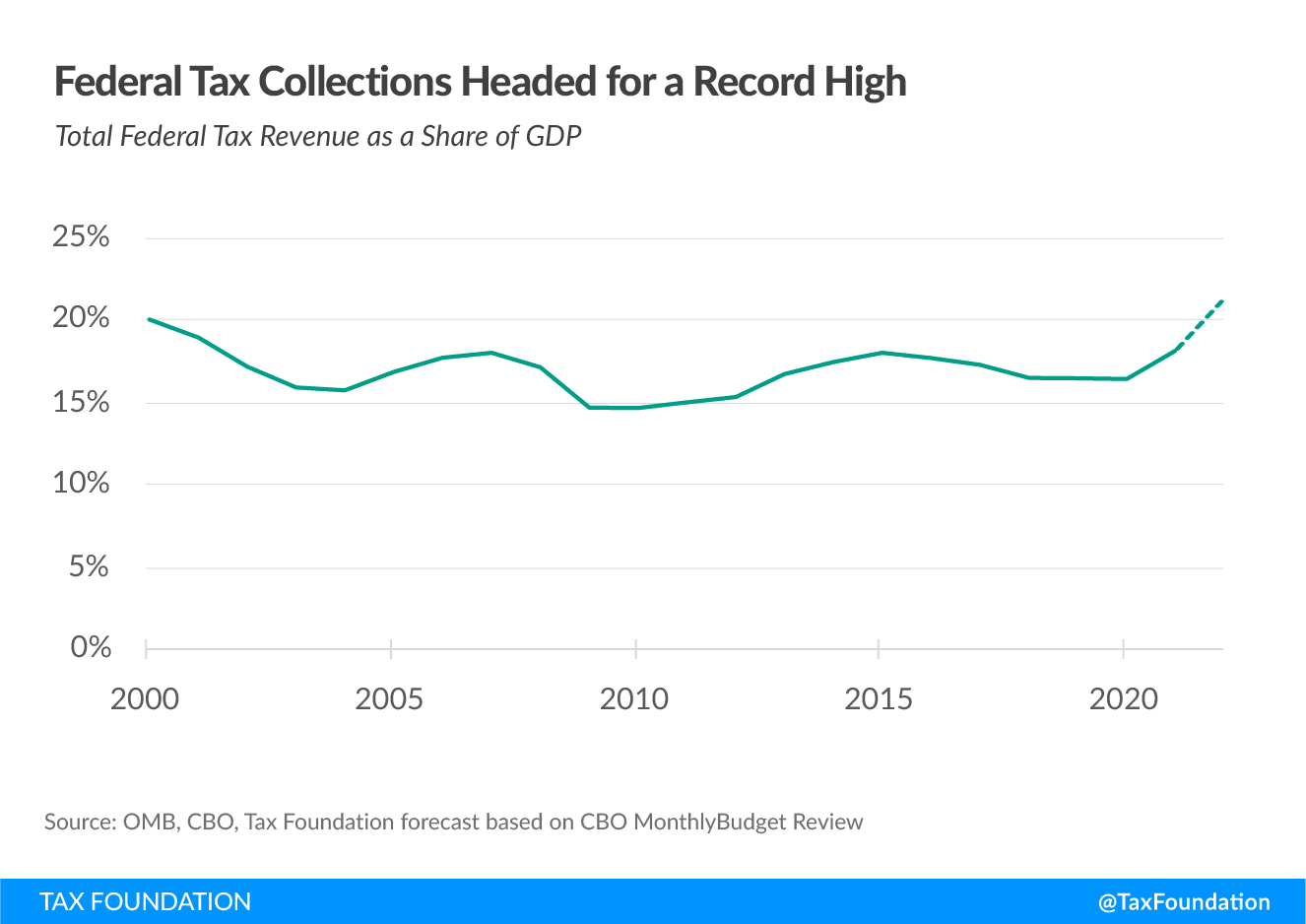After corporate taxA tax is a mandatory payment or charge collected by local, state, and national governments from individuals or businesses to cover the costs of general government services, goods, and activities. revenue came in at a record high of $372 billion in fiscal year 2021, we have been eagerly awaiting the forecast for fiscal year 2022, which the Congressional Budget Office (CBO) normally publishes in January but now plans for the week of May 23rd. The White House has included a forecast in its annual budget, predicting corporate tax revenue will grow just 2.9 percent this fiscal year, less than the current rate of inflation, to $383 billion, which would nonetheless be another record high in nominal terms.
However, there is reason to think corporate tax revenue will go higher this year, possibly much higher.
According to the CBO’s most recent monthly budget review, providing information on tax revenue receipts in the first six months of the fiscal year (October through March), corporate tax revenue is coming in 22 percent higher than last year’s record level. To the extent this pattern holds for the remainder of the fiscal year, corporate tax revenue will hit a new record of $454 billion—far exceeding any recent forecast by the CBO, even forecasts made prior to enactment of the Tax Cuts and Jobs Act (TCJA) in 2017 which reduced the corporate tax rate from 35 percent to 21 percent. For instance, CBO’s June 2017 forecast predicted corporate tax revenue would hit $389 billion in 2022.
Undoubtedly, inflationInflation is when the general price of goods and services increases across the economy, reducing the purchasing power of a currency and the value of certain assets. The same paycheck covers less goods, services, and bills. It is sometimes referred to as a “hidden tax,” as it leaves taxpayers less well-off due to higher costs and “bracket creep,” while increasing the government’s spending power. has contributed to this year’s boost in corporate tax receipts. However, even as a share of GDP (which also grows with inflation), corporate tax revenue this year is on track to reach its highest level since 2015, at 1.9 percent of GDP. This would beat CBO’s pre-TCJA prediction for 2022 as well as the long-run average level of collections over the 20 years prior to TCJA, both of which are about 1.7 percent of GDP.
The booming corporate tax receipts in fiscal year 2021 reflects a rebounding economy and huge growth in profits that year; S&P 500 profits grew 39 percent. Analysts currently expect this year will see slower but still substantial growth in S&P 500 profits of about 10 percent, which, to the extent it materializes, also points to record-high corporate tax revenue.
Inflation and the rebounding economy have also boosted other sources of revenue for the federal government. Individual income taxAn individual income tax (or personal income tax) is levied on the wages, salaries, investments, or other forms of income an individual or household earns. The U.S. imposes a progressive income tax where rates increase with income. The Federal Income Tax was established in 1913 with the ratification of the 16th Amendment. Though barely 100 years old, individual income taxes are the largest source of tax revenue in the U.S. receipts rose to an all-time high of $2.04 trillion in fiscal year 2021 and receipts are running 36 percent higher in fiscal year 2022. Total federal tax collections, including payroll and other taxes, reached an all-time high in nominal terms of $4.05 trillion in fiscal year 2021, amounting to 18.1 percent of GDP, well above the long-run average of 17.1 percent over the 20 years prior to TCJA. Total collections are running 25 percent higher in fiscal year 2022. If that pattern holds, total federal tax collections will hit $5.04 trillion in fiscal year 2022, or 21.0 percent of GDP—a new all-time high in both nominal terms and as a share of GDP.
Stay informed on the tax policies impacting you.
Subscribe to get insights from our trusted experts delivered straight to your inbox.
Subscribe

